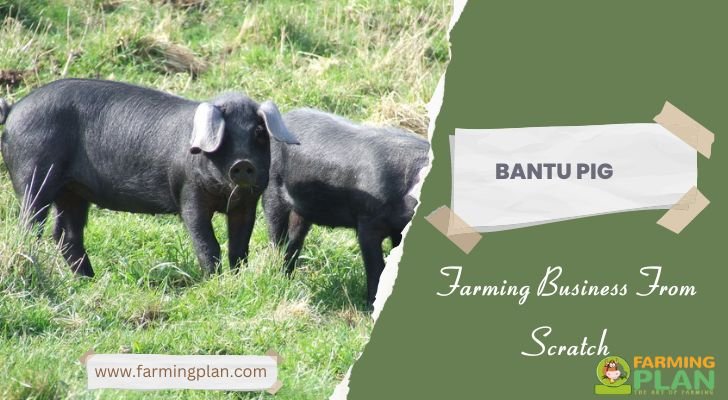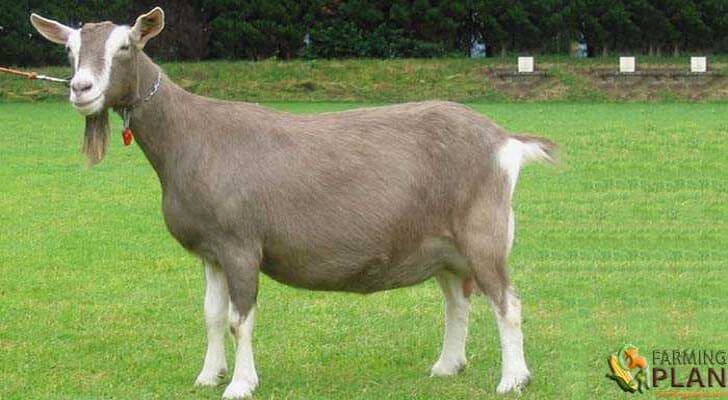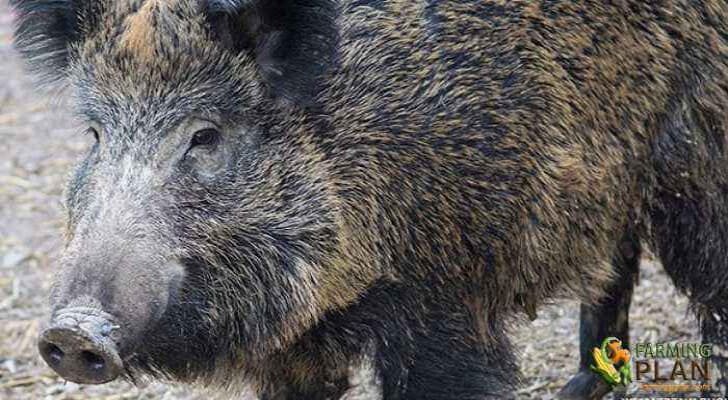Are you wondering how to tap into the lucrative international African Swine Fever (ASF) market? If so, consider starting a Bantu Pig farm. This ancient species of pig is native to central and southern Africa and has been treasured for centuries as an important source of food, income and cultural pride. With its unique genetics and hardy nature, this breed of swine can thrive in tropical climates while producing highly prized meat that commands high prices at local markets. By learning the basics of raising Bantu Pigs from scratch, you can begin building a sustainable farming business that provides nutritious and delicious pork products to customers both locally in Africa and on the global market. Get started today by reading our comprehensive guide on everything you need to know about raising Bantu pigs!

History & Origin
The Bantu pig is believed to have originated in East Africa, where it is commonly found to this day. It has been around for centuries, and genetic analysis suggests that the breed has descended from wild boar populations that were domesticated by African tribes long ago. Over time, these animals became the foundation for what is today known as the Bantu pig. While hardy and thriving in harsh conditions, they are now threatened by the rise of a highly contagious virus called African Swine Fever (ASF). This disease has spread rapidly since its emergence, posing a significant risk to millions of pigs around the world and threatening their very existence.
Characteristics
The Bantu Pig is a unique breed of domestic and wild pig that is affected by African Swine Fever (ASF). This virus has made an unfortunate impact on many pigs, leaving its signs unmistakable. Some of these signs include fever, weight loss, loss of appetite, fatigue, jaundice and skin lesions. If not treated in time the virus can often be deadly for the pig. ASF is highly contagious so it’s crucial contact with other pigs is avoided to prevent the further spread of infection.
Feed
The Bantu Pig is a domesticated breed of swine that has been around for centuries but has recently come under scrutiny due to its propensity to carry African Swine Fever (ASF). As ASF has become an increasingly common issue in the pig industry, feed modifications have become necessary to control the spread of the virus. In addition to limiting contact between infected pigs and healthy ones, pork producers must now regularly analyze feeds for traces of ASF-contaminated material and make sure they are providing balanced nutrition appropriate for the growth and development of their animals. Feed production practices must also ensure that feed ingredients are free from harmful bacteria, pollutants, and molds, as well as other known animal allergens. By taking these precautions and more, we can help limit the spread of ASF while promoting the health and wellbeing of all pigs from wild ones to domestic breeds like the Bantu Pig.
Usage
The Bantu Pig, also known as African Swine Fever (ASF), is an illness that affects various breeds of domestic and wild pigs. Although its symptoms can vary from case to case, the virus has received international attention due to its highly infectious capability. Many preventive measures have been adopted to reduce the chances of this disease spreading across global populations of pig species, but there are still many risks that need to be taken into consideration for any kind of usage involving swine hosts. It is encouraging to see such a focus on the health and welfare of these animals, but it is important to remain mindful of potential threats associated with utilizing these vulnerable creatures for commercial gain or otherwise.
Special Feature
The special feature of the Bantu Pig is its resistance to African Swine Fever (ASF); an extremely contagious swine virus that affects both wild and domestic pigs. While no one is sure exactly why the breed has this natural protection, scientists believe that a gene mutation is at work. This resistance allows the Bantu Pig to survive in areas where pigs from other breeds have been decimated by ASF, which makes it an incredibly valuable breed for pig farmers and those involved in conservation efforts around the world. Not only does it offer a haven for feral pigs threatened by ASF, but the Bantu Pig can also thrive in environments with limited resources, making it ideal for developing countries looking to raise a healthy pork source. As such, the Bantu Pig stands as a unique feature among swine with its remarkable ability to survive and even flourish in places where other varieties would not.
Benefits of Raising a Bantu Pig
Raising a Bantu pig can be a great way to diversify the type of livestock you have on your farm. It is considered an environmentally friendly breed as they root and forage for their own feed, which helps limit the amount of resources required from the farm. Additionally, its moderate size allows it to traverse terrain that other domestic pigs cannot access, meaning you can get more out of your acreage when raising a Bantu Pig. As this particular breed is also resistant to African Swine Fever (ASF), there is less risk of disease transmission, making them even more suitable for farming operations. All in all, if you are looking for a hearty and hardworking addition to your farm, consider raising a Bantu pig!
Prerequisites for Starting Your Own Bantu Pig Farm
Starting your own Bantu pig farm requires more than a simple love of animals and getting any old hog out of the gate. The Bantu pigs are uniquely susceptible to African Swine Fever (ASF) which can devastate an entire herd if it is not dealt with swiftly and appropriately. Thus, as a beginner in this venture, it would be wise to familiarize yourself with the signs of ASF and take all necessary precautions to prevent its spread throughout your herd. Additionally, one should be equipped financially and physically, to provide adequate food and shelter for these unique pigs. To ensure the success and health of these wonderful creatures, you must conduct diligent research before starting your own Bantu pig farm.
Challenges to Consider
Raising a Bantu Pig is no easy feat. It is important to keep in mind the potential challenges that come with this venture. An example of such a challenge is African Swine Fever (ASF). ASF is a highly contagious swine virus that can affect both domestic and wild pigs, making it essential for pig raisers to take proper measures to prevent their Bantu Pig from contracting the virus. Additionally, it is important to research what kind of resources are necessary to properly care for and maintain a Bantu Pig, as different types require different levels of care. Properly researching what kind of breed and food best suits your lifestyle and type of environment will ensure the healthiest environment for a Bantu pig.
Tips for Caring
Whether you keep a Bantu pig as a pet, on a homestead, or a farm, providing the right diet is key to their health and well-being. An ideal diet will include high-fibre feed such as hay and corn, along with smaller amounts of protein from seeds and other natural grains. Proper supplements like minerals and vitamins should also be added to the diet. For optimal health, pigs should also have access to foraging areas where they can find natural sources of nutrition like vegetation and bugs. As with any pet that requires specialised care, it’s important to do your research into the African Swine Fever (ASF) virus so that you can minimize risk when caring for your beloved Bantu pig.
Market Strategies
An effective marketing strategy for the Bantu Pig farm business is essential for growth and success. It’s important to promote the unique qualities of the Bantu Pig, including its robust health, productivity and higher resistance to diseases like ASF in comparison to other pig breeds. Using multiple channels to reach your target market will be vital in getting customers interested in your product. This means utilizing a mix of online and offline marketing tactics, such as email campaigns, advertising, flyers and targeted social media posts. Additionally, keeping up with industry trends to stay competitive is key; any new developments regarding the Bantu Pig should be taken into consideration when forming your strategy. By taking these measures into account when constructing a marketing plan, you can create an effective system that will boost interest in your product and ensure the continued success of your business.
FAQ
What is the Bantu breed of pig?
The Bantu pig is a hardy and versatile breed of swine originating in Africa. It has been bred over time to withstand harsh conditions, such as drought, while producing high-quality meat, even under adverse conditions. The Bantu pig has long ears that hang down to its snout and there is much variation in color from solid black or white to black with white patches and some reddish brown tinges on the coat. This variety gives it a toughness against disease and parasites as well as excellent adaptability to different climates.
What are the three 3 types of pigs?
There are three main types of domestic or commercial pig breeds: European Wild Boar, Asian Wild Boar and American Wild Boar. The first type is the European wild boar, which is a large mammal that lives in areas of Europe. It has long tusks and coarse fur with dark stripes on its back. The second type is the Asian wild boar, which mostly inhabits areas along the eastern coast, including Japan and China. Its weight can range from 50 to 500 kilograms depending on its age and sex. This breed has a more uniform coloration than other varieties due to its isolation within relatively small islands. The third type is the American wild boar, which comes from North America’s original stock of feral pigs but can also be found in Canada, Mexico and Central America now as well. It typically weighs between 70 to 200 kilograms when fully grown but may reach up to 700 kilograms if given enough resources for growth. This breed also has long tusks typical of other varieties but does not have any characteristic striping along its back like many other species have instead sporting solid black or brown hair colouration all over their body save for lighter patches around their ears similar in mannerism to that of dogs.’
What color is a Bantu pig?
A Bantu pig is a domesticated breed of pig that originated in southeastern Africa, most notably Angola and Mozambique. In particular, the breed has a distinctive black-and-white spotted coat which makes it easily distinguishable from other breeds of pigs. The spots on their coats can range from large to small and have an irregular shape. While many people assume this breed is only black and white, they come in a wide variety of shades including browns and greys as well. They are known for being very hardy animals that can adjust easily to different environments, making them popular with farmers who look for resilient animals able to adapt quickly.
Conclusion
In conclusion, the Bantu pig is a resilient and high-yielding species of technological livestock. It’s relatively easy to care for and offers several benefits to anyone willing to take on the challenge of raising them. From providing adequate shelter and nutrition to developing market strategies, there are many steps involved in successfully running a Bantu pig farm. While some challenges come along with caring for this breed, such as African swine fever, the rewards can be lucrative to those who put in the effort. With its special feature – high adaptability and ability to consume various forms of feed – it can be used both effectively and economically in farming businesses or as a source of food for families. The Bantu pig remains an invaluable asset that can contribute greatly towards sustainable agricultural development.


